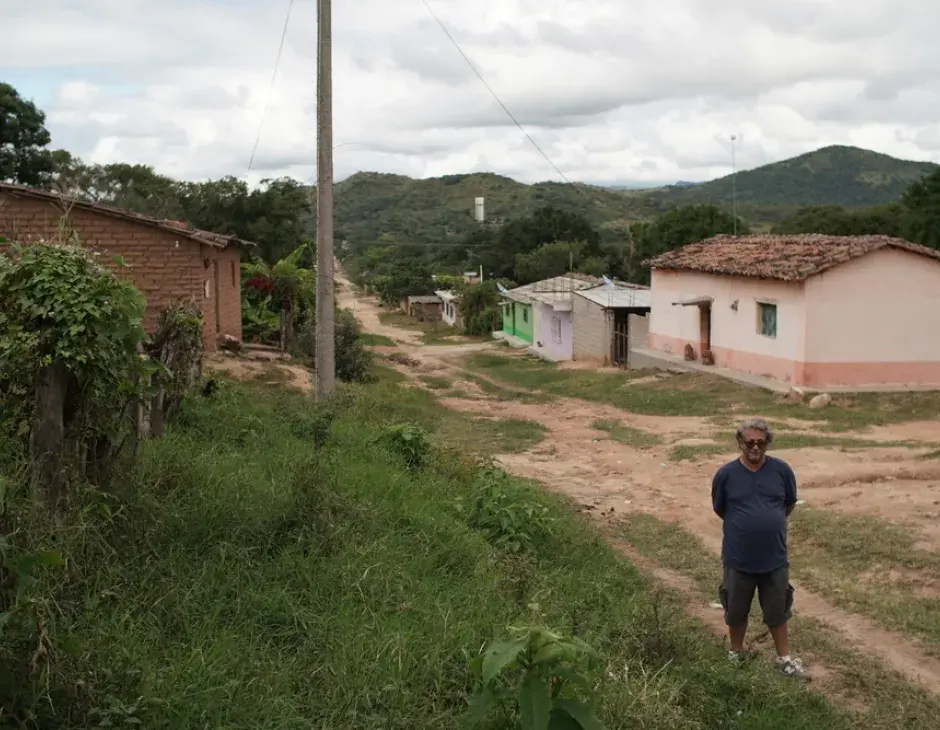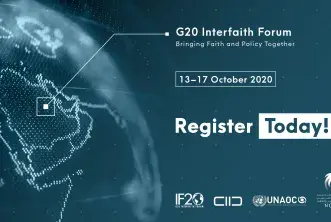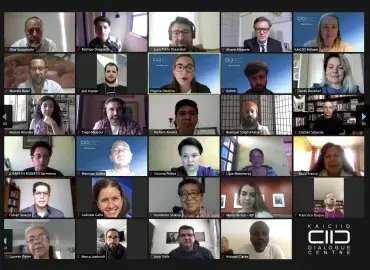Latin America G20 Interfaith Leaders Make Recommendations to Address Structural Inequality
The fight against inequality, above all in times of the pandemic and the eradication of human trafficking were on the agenda yesterday as dozens of religious leaders and representatives of Latin American-based groups, intergovernmental organisations, senior policymakers and experts gathered virtually to present recommendations ahead of the G20 Interfaith Forum.
The Forum, which is now open for registration, will take place online, streaming from Riyadh, Saudi Arabia from 13-17 October.
Yesterday’s virtual meeting showcased the recommendations from four working groups who were charged with examining how to combat social and economic challenges, improve governance and protect Latin America’s climate and diverse ecosystems. One of the working groups also made a number of key recommendations about how G20 nations should respond to the challenges posed by the ongoing COVID-19 pandemic.
While the coronavirus pandemic has claimed 900,000 lives globally and highlighted the fragility of governance systems around the world, the crisis has further deepened existing inequalities throughout countries in Latin America, the region with the most infections in the world.
According to recent reports, the number of coronavirus cases in Latin America passed the 8 million mark, though there are indications that the virus is currently spreading more slowly in some countries. In recent days, the daily average of cases in the region has fallen to 67,173 from 80,512 in the previous week. One of the G20 members, Brazil, has suffered the worst outbreak in the region, recording a total of 4.2 million infections and more than 128,000 deaths to date.
The impact of the coronavirus on Latin American economies has triggered the biggest financial downturn in living memory. “2020 is an extraordinary year for us all and it has both challenged and transformed the G20 process,” said Professor Katherine Marshall, member of the G20 Interfaith Forum Advisory Council. “That is true both for the Summit’s leaders and for the Interfaith Forum. COVID-19 is reshaping the idealistic agendas set out early in the year, putting health disparities at the forefront but also issues ranging from climate change, the informal sector, to education and technology.”
The meeting was attended by Ambassador Guillermo Rodolfo Oliveri, Secretary for Worship, Ministry of Foreign Affairs, International Trade and Worship of Argentina. "In problematic circumstances, such as the one we are experiencing now in the world, governments have to stand ready to collaborate permanently with the religious communities, because they are the ones who, in addition to the spiritual care, undertake very necessary social tasks," he said.
Elías Szczytnicki, Director, Latin American and Caribbean Religions for Peace Regional Office, while presenting the recommendations on the topic of climate change, brought a concrete example of the contribution of faith groups to global issues: “an interreligious initiative is being carried out in Peru, Colombia and Brazil to protect the forests, showing in a practical way the faith communities’ responses to this enormous challenge.” In the context of the risks faced by the Amazon, which is shared by 9 countries in the region and is home to the greatest biodiversity on the planet, he stressed that the health of forests, land and ecosystems is at the core of human health itself. One of the recommendations of this group was to strengthen the environmental governance of local governments, with the participation of civil society, to protect and preserve the planet's forests, their surrounding ecosystems and the indigenous peoples who are their natural guardians.
Yesterday’s recommendations to the G20 Interfaith Forum, presented by Jorge Knoblovits (President of DAIA), Juan Navarro Floria (Consejo Argentino para la Libertad Religiosa, CALIR) and Elena Lopez Ruf (Centro Regional Ecuménico de Asesoría y Servicio CREAS) also included the adoption of measures aimed at the eradication of human trafficking and fighting corruption. Other recommendations were to institutionalize, at the global governance level, new cooperative mechanisms that facilitate early warning signals and to promote transparency and information exchange between different regions to address problems that, like the pandemic, have a global impact.
The International Dialogue Centre (KAICIID) today opened the call for applications for the new Latin American and the…



